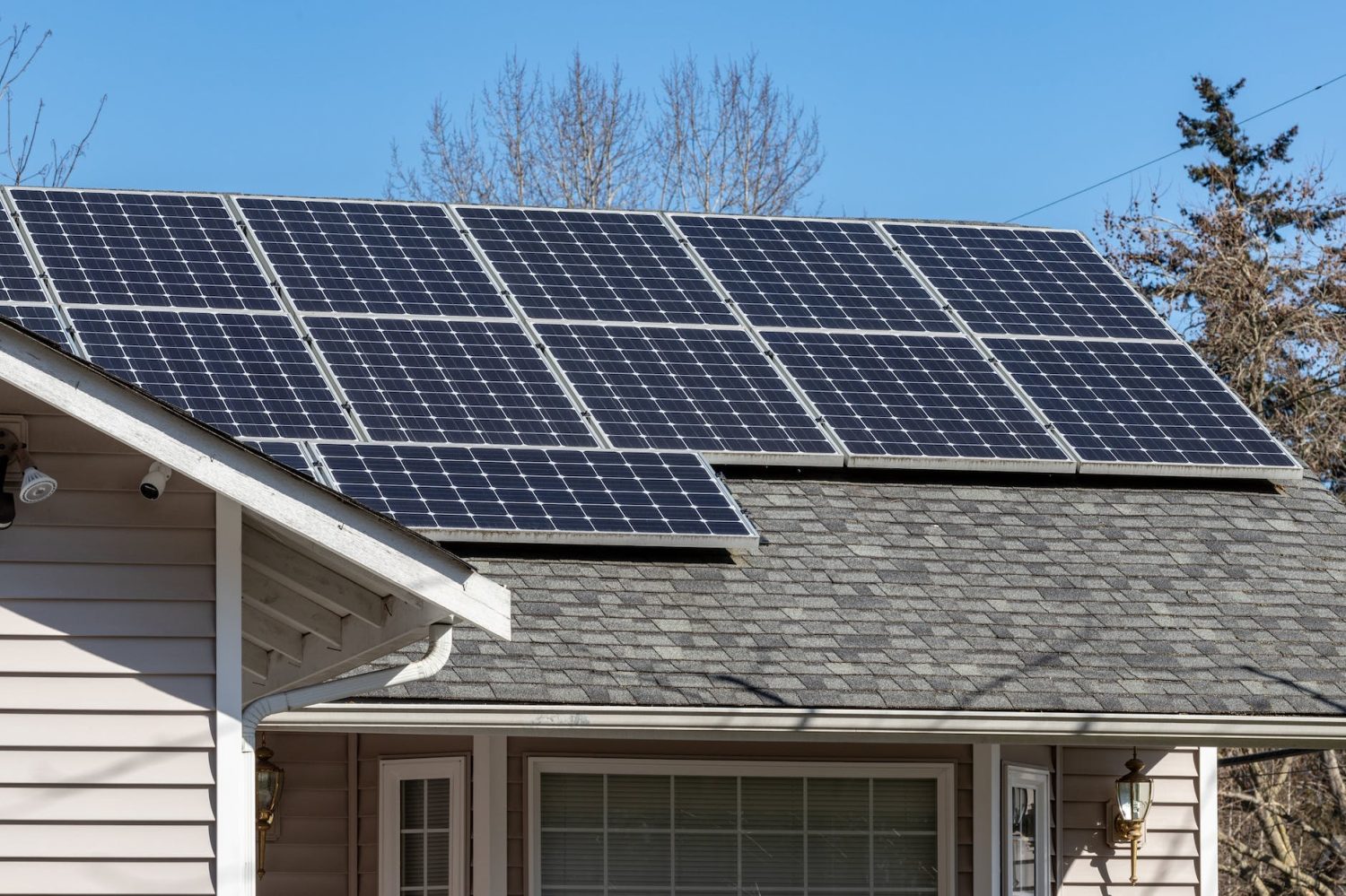
In 2022, US small-scale rooftop solar saw a tenfold increase over the last decade, according to a new report – here’s why and what needs to happen next.
In 2022, residential rooftop solar produced enough energy to power 5.7 million US households, according to “Rooftop Solar on the Rise,” a new report by Environment America Research & Policy Center and research and analysis nonprofit Frontier Group. In fact, it generated 64% of all electricity from small-scale solar installations in the US that year.
The researchers also report that state and federal policies that support rooftop solar installation have driven its rapid growth. That, in turn, reduces energy costs, eases strain on the grid, and boosts energy resilience during extreme weather.
Rooftop solar could potentially generate about 45% of the electricity the US uses, the researchers found. In 2022, rooftop solar generated about 1.5% of all US electricity, but it’s going to grow rapidly in the next couple years and beyond. Consistent statewide policies on permitting, interconnection policies, rate designs, and solar incentives would help spur that growth.
The top five states for total rooftop solar generation in 2022 were California, Arizona, New York, Massachusetts, and New Jersey, all of which have (or had, in California’s case) pro-solar policies.
California is currently the frontrunner by far when it comes to installed rooftop solar, but it’s on track to lose its lead, thanks to the recent disastrous net metering policy changes that cut up to 50% of the compensation value of newly installed rooftop solar systems. That poor policy has devastated sales, shut down rooftop solar installers, created huge job losses, and threatens the state’s long-term climate goals.
The Solar Energy Industries Association (SEIA) has dropped California from No 1 to No 2 in its five-year growth projection and ranking, and says that the state’s residential solar market is expected to decline by 40% in 2024.
Going forward, the report recommends that state and local governments ramp up policy adoption that cuts red tape and streamlines installation and grid connection. It also points out that selling battery storage energy back to the grid needs to be simplified, and potential customers would also benefit from more financially accessible purchasing or leasing options.
The study also (rightly) urges state and local governments to promote awareness about the 30% federal tax credit for rooftop solar installation in the Inflation Reduction Act, among other tax credits and rebates it offers.
Johanna Neumann, senior director of Environment America Research & Policy Center’s Campaign for 100% Renewable Energy, said:
Each of the 3.9 million Americans who have installed solar panels on their homes have helped the rise of solar power. Now is the time for state lawmakers to help more Americans from all backgrounds reap the financial and environmental benefits of solar.
Read more: A massive US solar panel maker just went all in on panel recycling
Now is a great time to begin your solar journey so your system is installed in time for those sunny spring days. If you want to ensure that you find a trusted, reliable solar installer near you that offers competitive pricing, check out EnergySage, a free service that makes it easy for you to go solar. They have hundreds of pre-vetted solar installers competing for your business, ensuring you get high-quality solutions and save 20-30% compared to going it alone. Plus, it’s free to use and you won’t get sales calls until you select an installer and you share your phone number with them.
Your personalized solar quotes are easy to compare online, and you’ll get access to unbiased Energy Advisers to help you every step of the way. Get started here. –ad*
FTC: We use income earning auto affiliate links. More.





Comments